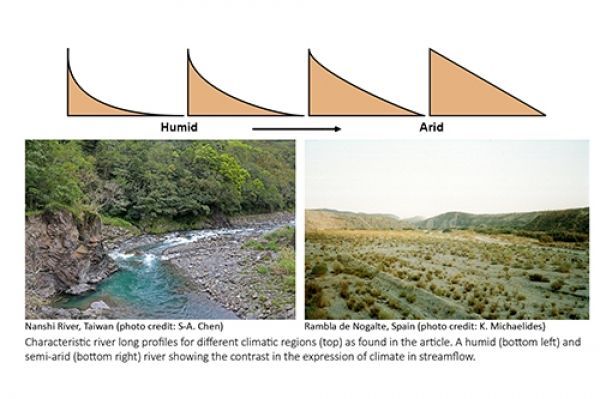For decades geoscientists have been trying to detect the influence of climate on the formation of rivers, but up to now there has been no systematic evidence.
If you walk from a river’s source to its mouth, you walk a path that descends in elevation. In some rivers, this path will descend steeply out of the uplands, and then flatten out in the lowlands. This results in an elevational profile (which we call the long profile) that has a concave up shape, similar to the shape of the inside of a bowl as you trace it from the inside rim to the bottom. In contrast, a straight long profile descends evenly in elevation, like a ramp, along the path as you walk from the source to the mouth.
The new research by Chen et al. shows that while river long profiles tend to be concave up in humid regions, they become progressively straighter in drier regions.
Lead author Shiuan-An Chen from the University of Bristol’s School of Geographical Sciences, said: “The long profile is formed gradually over tens of thousands to millions of years, so it tells a bigger story about the climate history of region. We would expect climate to affect the river long profile because it controls how much water flows in rivers and the associated force of water to move sediment along the riverbed.”
Continue reading at University of Bristol
Image via University of Bristol


